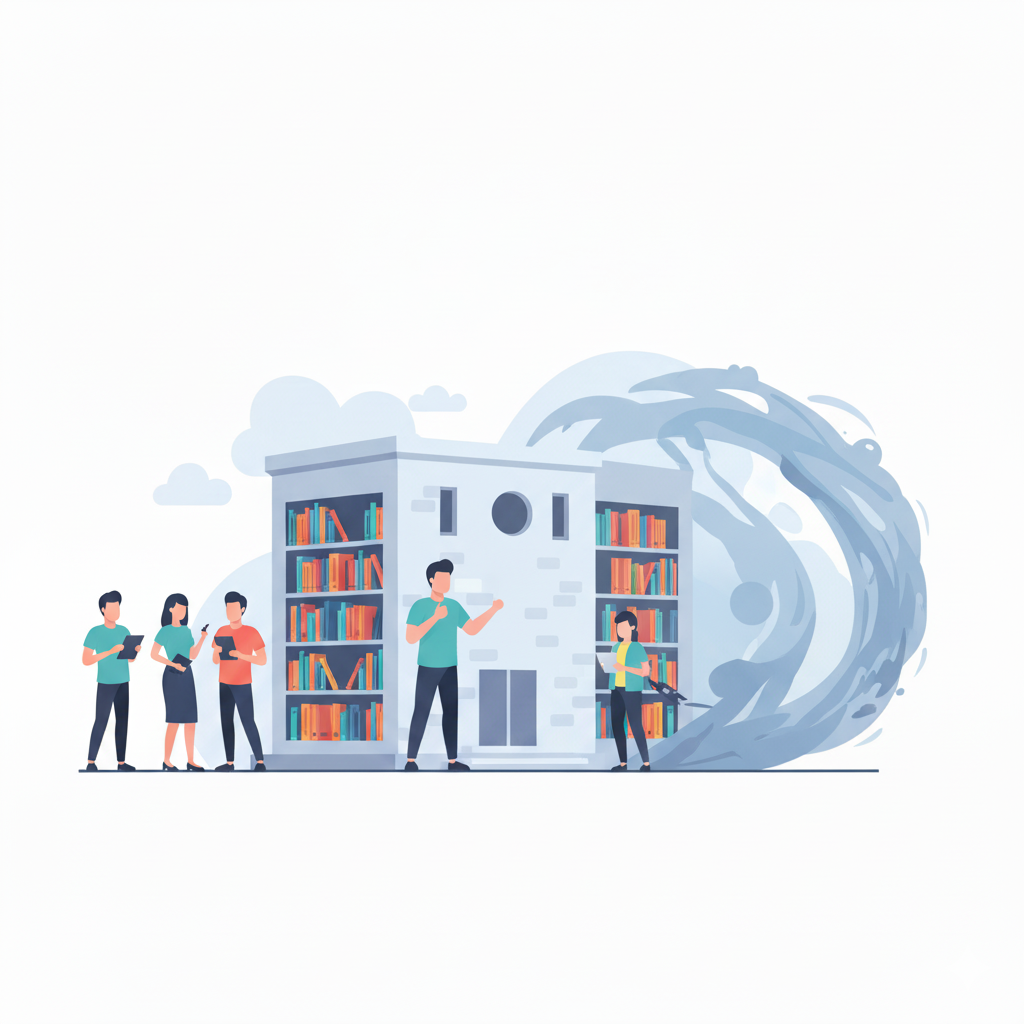Literasi Informasi dalam Isu Kebebasan Pers: Tantangan perpustakaan dalam Menangkal Disinformasi di Masyarakat
DOI:
https://doi.org/10.53088/librarium.v2i1.1530Keywords:
Press freedom, Disinformation, ChallengesAbstract
The aim of this research is to determine the function of libraries in increasing knowledge about information, overcoming the problem of disinformation in society, and ensuring healthy press freedom. It is hoped that this will be created with a collaborative approach between libraries, media and the community. The research method used is literature study. The research results show that libraries have a responsibility to educate the public to think critically and evaluate information correctly as institutions that can be trusted to provide access to information. Among the problems faced are the large number of fake news spreading through digital media, a lack of awareness of the importance of trusted sources, and the limitations of certain community groups in gaining access to technology. Therefore, libraries must use the latest technology, develop educational programs on relevant information literacy, and collaborate with other institutions to strengthen efforts to combat disinformation.
References
Aisyah. (2020). Disinformasi dan Dampaknya terhadap Masyarakat. Jurnal Komunikasi, 12(1), 45–60.
Anjali, M. E. C., & Istiqomah, Z. (2020). Meningkatkan literasi informasi penulisan karya ilmiah mahasiswa melalui pelatihan zotero. Berkala Ilmu Perpustakaan Dan Informasi, 16(2), 198–210. https://doi.org/10.22146/bip.v16i2.104
Aziz, A., & Zakir, S. (2022). Indonesian Research Journal on Education : Jurnal Ilmu Pendidikan. 2(3), 1030–1037.
Hakim, F. A., Hafizd, J. Z., Rana, M., Hakim, A., Pemberitaan, D., Cirebon, F., Politik, P., Nomor, T. U., & Tentang, T. (2024). Dampak Pemberitaan Fajar Cirebon Dalam Pendidikan Politik Tinjauan Undang-Undang Nomor 40 Tahun 1999 Tentang Pers The Impact of Reporting on Fajar Cirebon in Political Education Review of Law Number 40 of 1999 concerning the Press Pendahuluan Jalannya per. 1(2), 159–175.
Istiqomah Zeni, C. A. M. E. (2020). Meningkatkan literasi informasi penulisan karya ilmiah mahasiswa melalui pelatihan zotero. Ilmu Perpustakaan, 16–2.
Kurniawan. (2021). Disinformasi dan Keterlibatan Masyarakat dalam Demokrasi. Jurnal Ilmu Sosial Dan Humaniora, 10(3), 201–215.
Lubis, P., Mardianto, M., & Nasution, M. I. P. (2023). Gerakan Literasi Sekolah: Tantangan Literasi Di Era Digital Dan Cara Mengatasinya. Jurnal Media Infotama, 19(2), 487–496. https://doi.org/10.37676/jmi.v19i2.4399
Nadzirin Anshari Nur Muhammad, H. (2024). Kebebasan Pers, Tanggung Jawab dan Etika Jurnalistik dalam Lingkungan Media Online yang Kompetitif. Pembangunan Hukum Indonesia, 6(2), 301–314.
Nisa, K. (2024). Peran Literasi di Era Digital Dalam Menghadapi Hoaks dan Disinformasi di Media Sosial. Impressive: Journal of Education, 2(1), 1–11. https://doi.org/10.61502/ijoe.v2i1.75
Nur’afra, A., Permata, F. M., Maharani, M. N., Putri, N. S., Solehah, S. N., & Nurjaman, A. R. (2024). Literasi Media untuk Melawan Hoaks. Cendekia Pendidikan, 3(11), 112–123.
Ridwan, M., AM, S., Ulum, B., & Muhammad, F. (2021). Pentingnya Penerapan Literature Review pada Penelitian Ilmiah. Jurnal Masohi, 2(1), 42. https://doi.org/10.36339/jmas.v2i1.427
Rushendi, Sa’diah, D., & Titaningsih, D. (2021). Literasi informasi pemustaka dalam mengakses sumber informasi di Perpustakaan BALITTRO. Media Informasi, 30(1), 115–136. https://doi.org/10.22146/mi.v30i1.4019
Safrudin, S., & Sesmiarni, Z. (2022). Profesional Guru Pendidikan Agama Islam (PAI) Dalam Meningkatkan Literasi Di Era Digital. JKIP : Jurnal Kajian Ilmu Pendidikan, 3(1), 43–53. http://journal.al-matani.com/index.php/jkip/index

Downloads
Published
How to Cite
Issue
Section
License
Copyright (c) 2025 Nurhamidah Ramadani, Ita Rodiah

This work is licensed under a Creative Commons Attribution-ShareAlike 4.0 International License.
Authors retain copyright and grant the journal the right of first publication with the work simultaneously licensed under a Creative Commons Attribution-ShareAlike 4.0 International License. In line with the license, authors are allowed to share and adapt the material. In addition, the material must be given appropriate credit, provided with a link to the license, and indicated if changes were made. If authors remix, transform, or build upon the material, they must distribute their contributions under the same license as the original.
License details: https://creativecommons.org/licenses/by-sa/4.0/

